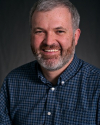- Winter 2020
Syllabus Description:
Video details
Zoom meeting room https://washington.zoom.us/j/357098277
Please feel free to unmute and call out questions. If you are just listening please leave your audio muted to avoid unintentional and embarrassing background noises. Whether you turn on video or not is up to you, but it is easier to understand you if your video is on.
Friday will be simulcast, meaning that I will be in class and on zoom. We will be holding all 4 lectures next week, but online only.
FAQ
Do you need still need to attend class (virtually)? Yes, it is part of your class participation grade.
Does this affect the final paper and homework? No, for these we are continuing on as usual. The only change is meeting online instead of in person.
Welcome
We live in a technological world surrounded by machines of nearly magical ability. For your grandparents knowing where you were to within a mile or two required specialized equipment and training—now you just take out your phone. And if they were injured doctors used radioactive minerals and silver salts to look inside the body instead of an MRI machine. But how do GPS and MRI machines work?
It turns out that relativity and quantum mechanics have become the foundation of much of modern technological life. In this class we will explore how our modern technological world depends on relativity and quantum mechanics, and along the way we will explore the history of quantitative knowledge—how we know what we know.
Embarking on a modern physics class can be intimidating—few things trigger more fear than “a simple introduction to physics.” But to the intrepid and brave, I will make a few promises before we start:
-
No math. While the language of relativity and quantum mechanics is written using fairly advanced math, I don’t believe one has to read Japanese before you can appreciate Japanese art. Our journey will focus on the beauty and elegance of the physical world.
-
No philosophy. There has been a fascination with the ‘meaning’ of quantum mechanics and relativity, but we’ll leave that discussion for pints down at the pub. Here we will focus on what we see.
-
Everything we encounter will be experimentally verified. While some of the results might be surprising, nothing we encounter will be speculative. This is how our world works.
Grading
Grades will based on homework, quizzes, midterms (Feb 4 & Mar 3), class participation, and a final paper. There will be no final. As this is a new class, the exact division of points is TBD. In general the early part of each week will concentrate on understanding how the physical world works, with the end of the week looking at how that impacts our lives and the history of quantitative understanding. Homework will be due Saturday night each week, and extra credit on homework will always be available for creativity or extra effort. Reading load will be modest, but much of the reading will be difficult (must be read slowly). Quizzes will be assigned along with the reading assignments.
Office hours
Miguel Morales: Thursday 2:30-3:30 in PAB C325, and by appointment.
Ryan Lanzetta: Monday 2:00-3:00 in PAB C108 (hbar)
Syllabus
Week 1
M: Introduction; ice breaker; Eratosthenes
T: What time is it? Earth rotation, sidereal, analema, solar and stellar elongation
Th: Where am I? Lattitude & Longitude; ancient way finding
Reading: History of clocks, quiz
Homework: Sun dials, etc.
Week 2
M: Introduction to Waves. Wavelength, amplitude, speed, transverse, compression, restoring force
Th: Moving like a wave and hitting like a particle
F: Electromagnetic spectrum & telescopes across the spectrum
Reading: Chapter 1
Homework: Double slit
Week 3
M: MLK
T: Speed of light, starting with the Galilean moons, moving to measurements.
Th: Special Relativity. Concentrate on everyone thinks they’re right. Non-additive speed.
Reading: None
Homework: (Combined with Week 4)
Week 4
Th: GPS
F: Midterm review
Reading: Chapter 2
Homework: Relativity & Particle Mixing
Week 5
T: Midterm 1 (Feb. 4th)
Homework: History of computation and Midterm #1 correction
Week 6
T: Particle introverts & extroverts
Th: Spectrum allocation and VNA show and tell
F: Recording music. Music notation, player piano, records, CDs, MP3+
Reading: Chapter 3
Homework: Final Paper Proposal
Week 7
M: President’s Day
F: Interferometers, science & applications
Reading: Chapter 4
Week 8
M: Why the Caged Bird Sings (trapped waves)
T: Atomic Traps
Th: Quantum Dots
F: Midterm review
Reading: Chapter 5
Week 9
M: Review & catch up
T: Midterm 2 (March 3rd)
Th: Quantum Spooks
Reading: Ch 6 PHYS 110.pdf
Week 10
T: Power generation: livestock, water… to superconductors
F: Medical imaging: x-rays to MRI
Reading:
Accommodations
Most accommodation requests will be handled through Disability Resources for Students, including special testing requests on the midterms.
Washington state law requires that UW develop a policy for accommodation of student absences or significant hardship due to reasons of faith or conscience, or for organized religious activities. The UW’s policy, including more information about how to request an accommodation, is available at Religious Accommodations Policy (https://registrar.washington.edu/staffandfaculty/religious-accommodations-policy/). Accommodations must be requested within the first two weeks of this course using the Religious Accommodations Request form (https://registrar.washington.edu/students/religious-accommodations-request/).
